I was 21 years old when a mountain biking accident left me without the use of my legs. Biking had been my passion since I was 13 years old, and I used to take part in competitions. I broke three vertebrae in my spine, and it left me paraplegic. My sister had died a month earlier from a brain aneurysm. It was a bitter time, both for me and my family.
I am the son of a farmer and had been studying agricultural technology at the time of the accident. I grew up watching my father produce vegetables and fruits, and from the age of 15 I knew that I wanted to follow in his footsteps. Before the accident I had begun experimenting with growing onions, watermelons, and other melons.
But after the accident, I went from being an active young person who worked at the farm and did sports, to being stuck in bed and depending on others. It was a radical change. I spent weeks crying, in angst, wanting to die.
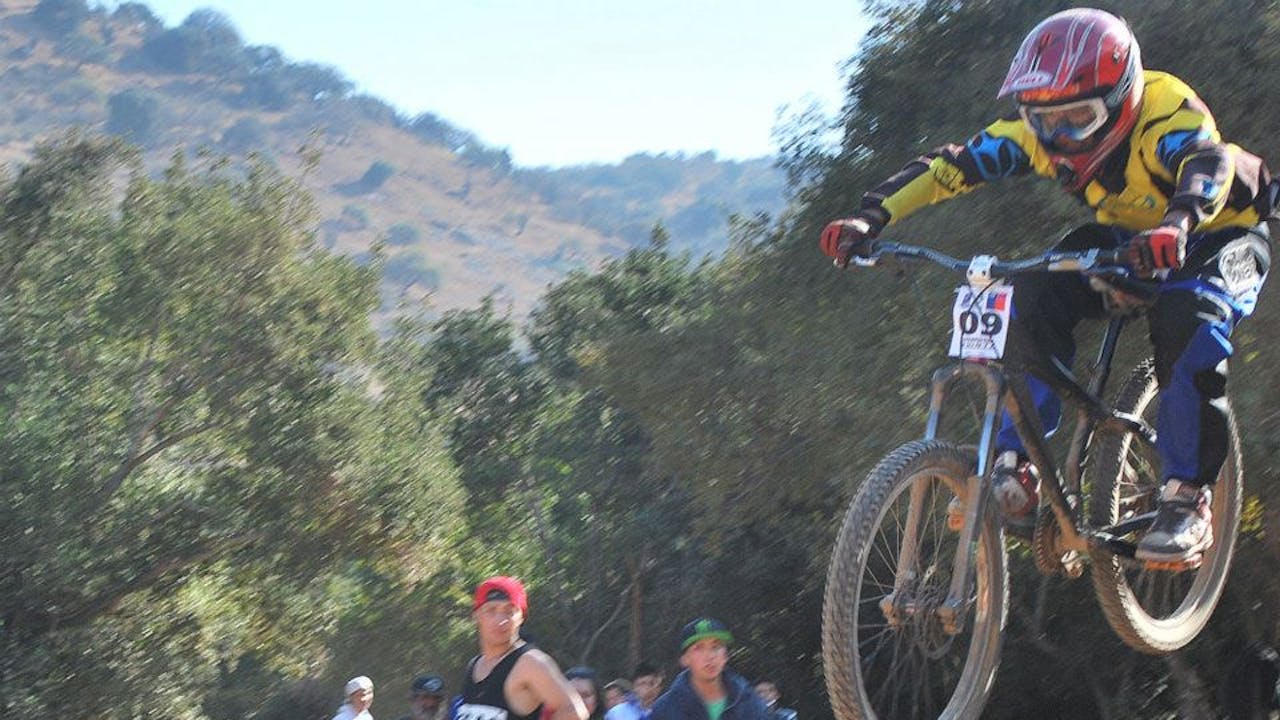
A snapshot of me flying through the air on my bike at a mountain biking competition when I was a teenager.
© Alfredo CarrascoAfter a while, I finally understood that life goes on, that the days go by, and that if you choose to stay in that state of angst and negativity, the days will still go by, and you end up staying in that same place.
That's what led me to flip the switch, change my mindset, and start to work on my rehabilitation. I understood the first thing I needed to do was to learn to use a wheelchair and regain my independence.
That began a chain reaction. Working on my rehabilitation allowed me to finish school. Finishing school led me to a point in my life where I could say, "Hey, how can I re-insert myself into the place I like, which is the farm?".
In the hospital during that first stage, I remember thinking about building a greenhouse to produce seedlings. That reassured me, and I thought, "Okay, I will focus on that. I'll produce seedlings. That is a job I'll be able to do. I will do that." That idea remained on standby until 2019, when a man who used to work with my father – Oscar Mejías de Avanza Consultores – approached me, wanting to help. That’s when we started to develop FarmHability.
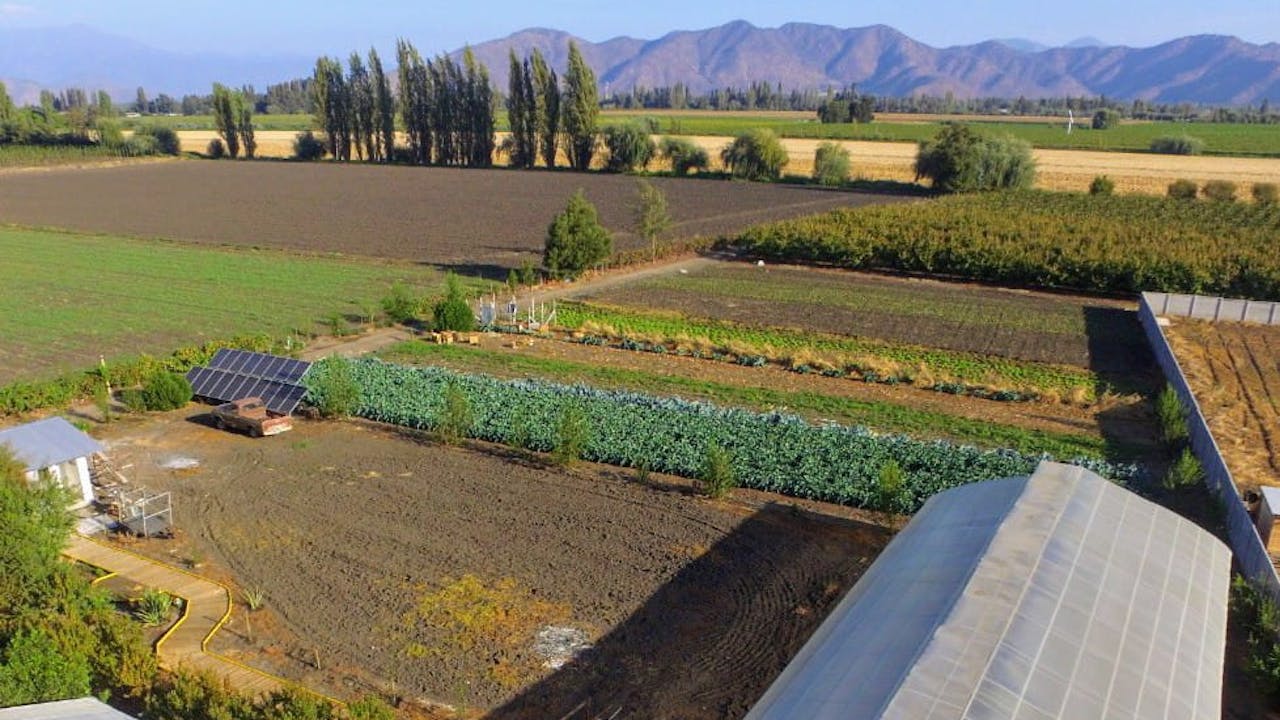
After the accident, I held on to this idea that I could still eventually produce seedlings at my family’s farm. That’s what helped motivate me with my recovery.
© Alfredo CarrascoInitially, FarmHability was mainly a solution to make my life easier and allow me to return to the work environment after two years of rehabilitation.
We applied to the Chilean Agricultural Innovation Foundation (FIA), with a proposal to develop a greenhouse that would meet accessibility standards, so that I could work and be productive once again. That's how the FarmHability project started, full of motivation, with lots of expectations.
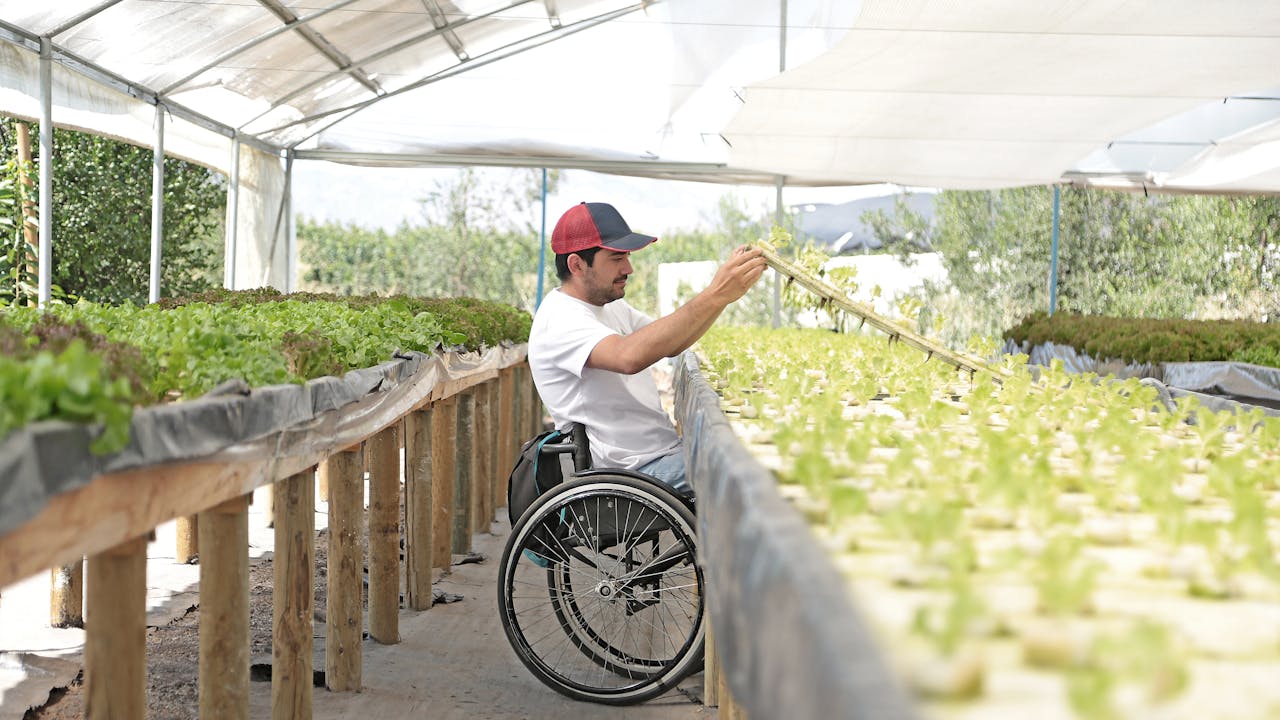
The greenhouse has been designed so that I can move around easily with my wheelchair. All the plants are at a level that is adapted to my height when seated.
© ILO/OIT Francisco CastilloTo be honest, it was a complex undertaking. The possible outcome of all this seemed very uncertain. We had to do market research for the first stage of the FIA project. I personally interviewed over 400 people with disabilities from my region. Around that time, I remember finishing an interview and saying to Oscar, "Hey, what are we getting into here?”
Once we had collected all the research findings, we realized that people with disabilities face huge issues in finding employment in rural areas. We saw that we needed to open this space to the public to show them what we were developing at FarmHability.
We realized that people with disabilities face huge issues in finding employment in rural areas.

That's when we decided, "Hey, we need to work on this. We need to make sure this doesn't just stay here. We need to open it to the public, show it to others, and invite people to participate in training workshops."
We wanted to let people know that anyone with any disability can be independent; that's number one. Number two, that a person with a disability can be productive on a farm. They can produce food, even while having a disability. I think those are the main myths and barriers that are being torn down.
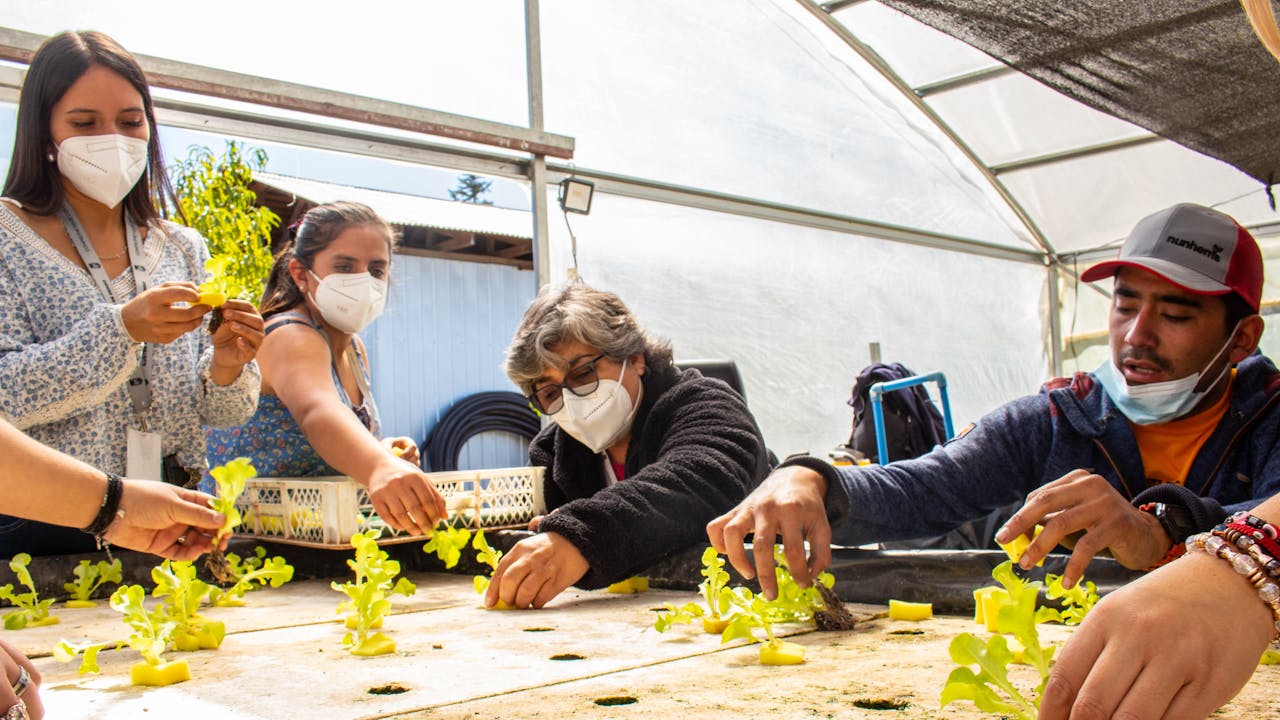
The workshops at the farm have been really popular. The COVID pandemic slowed things down for a while, but so far 600 people have visited the farm to learn about FarmHability.
© Alfredo CarrascoWe were also in the middle of the COVID-19 pandemic, which made everything a bit harder. We wanted to start with groups of 15 people, hopefully with associations, but initially we were forced to bring smaller groups of two or three people. That moment was quite satisfying, especially being able to work with senior citizens who had been restricted to their homes to stay safe.
Honestly, it was beautiful and exciting to see how happy people were about sharing and interacting with nature.
The restrictions have lifted now, and we can do workshops, especially in the open air. So far, over 600 people have gone through FarmHability, whether it's for agrotourism, which we also offer, or for training workshops on urban crops and hydroponic systems. These are the two branches of agriculture we are currently working on.
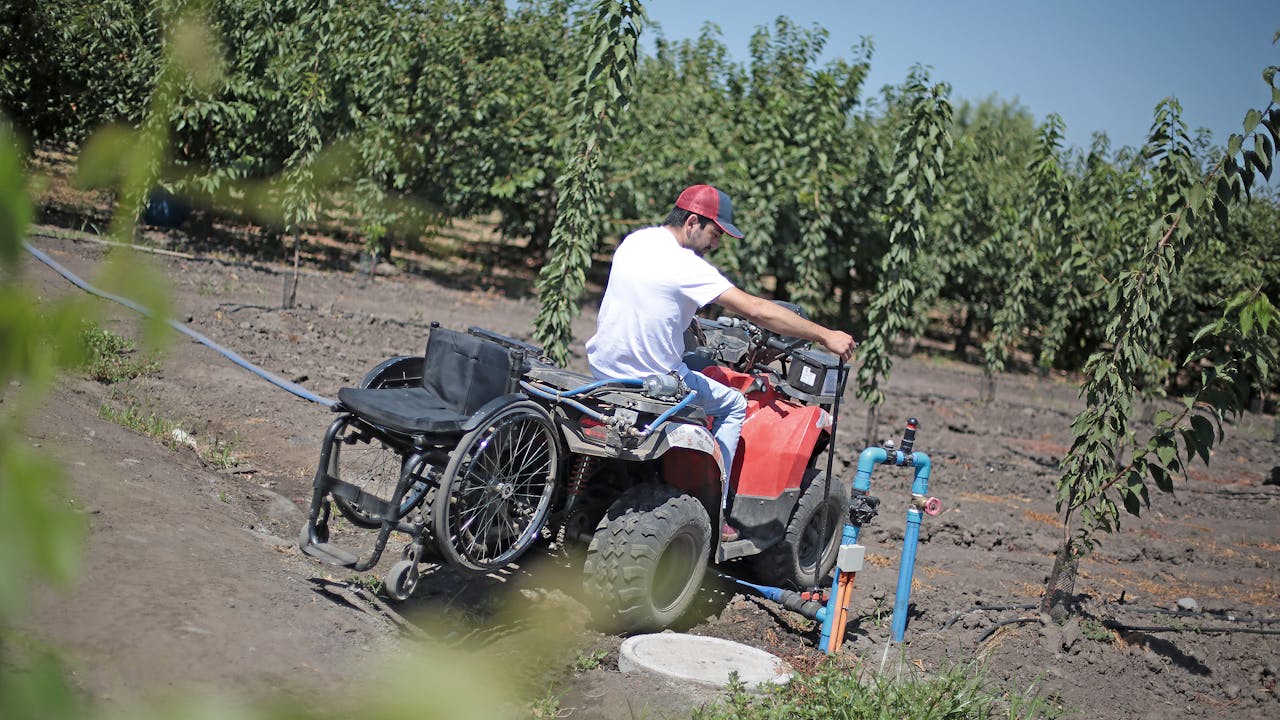
I use an adapted quad bike to move around the farm and turn on the irrigation system using a hand-held tool.
© ILO/OIT Francisco CastilloIt’s a year and a half since we started delivering our products to supermarkets. That was an important milestone, giving us more credibility.
It allowed us to start planting crops in the open field, in a place that is normally completely inaccessible for a wheelchair. We currently have two and a half hectares of open-air crops.
We had been talking about how having an adapted space like the greenhouse was not enough on its own. So, we developed another project, with FIA's support, which was the development of an all-terrain vehicle, a prototype based on a quad bike, that allows a person with a disability or senior citizen to participate in some of the agricultural tasks we do in the open field. This is another important advancement in the sector.
Now, for this 2023 season, we're going to increase our production. Fortunately, we will be able to build another 500m2 greenhouse plus a processing room, which will allow us to employ one or two full-time workers with disabilities, which is important to us.
In March, we will start developing the FarmHability Foundation, to strengthen our work on the inclusion of people with disabilities in the rural and agricultural sectors. Through this foundation, we want to become a bridge between people with disabilities and companies that wish to hire them.
We have identified certain issues affecting people with disabilities that need to be addressed. It would mean involving occupational therapists, kinesiologists, psychologists, and a wide range of professionals, which is something you can't do as a company. That’s why we want to start the foundation alongside the company.
We need employers to become educated about people with disabilities. Secondly, we need visibility for the person with a disability in a way that is more positive and optimistic.

FarmHability is contributing to society in two key areas: education and visibility. Firstly, we need employers and the general public to become educated about people with disabilities. Secondly, we also need visibility for people with disabilities, and not in a way that is pitying, negative, or sad, but in a way that is more positive and optimistic.
Here in Chile, some doctors in the medical profession can be so negative. They would see me and say, "No, you're going to stay in the wheelchair; you'll never be able to do anything again. Forget about it." They completely wreck you. I think it's important to spark change there. In addition, we need to continue working with education systems, involving people with disabilities in education, including higher education.
This also involves other issues that need to be addressed, such as transportation. I think that's also part of our responsibility, as people with disabilities. We need to go out there and find the opportunities, to show ourselves to the world, and, no doubt about it, contribute to the world as well.
FarmHability is precisely that. Fortunately, we have also received support from institutions, and private individuals who believe in the initiative, and the project is getting bigger.
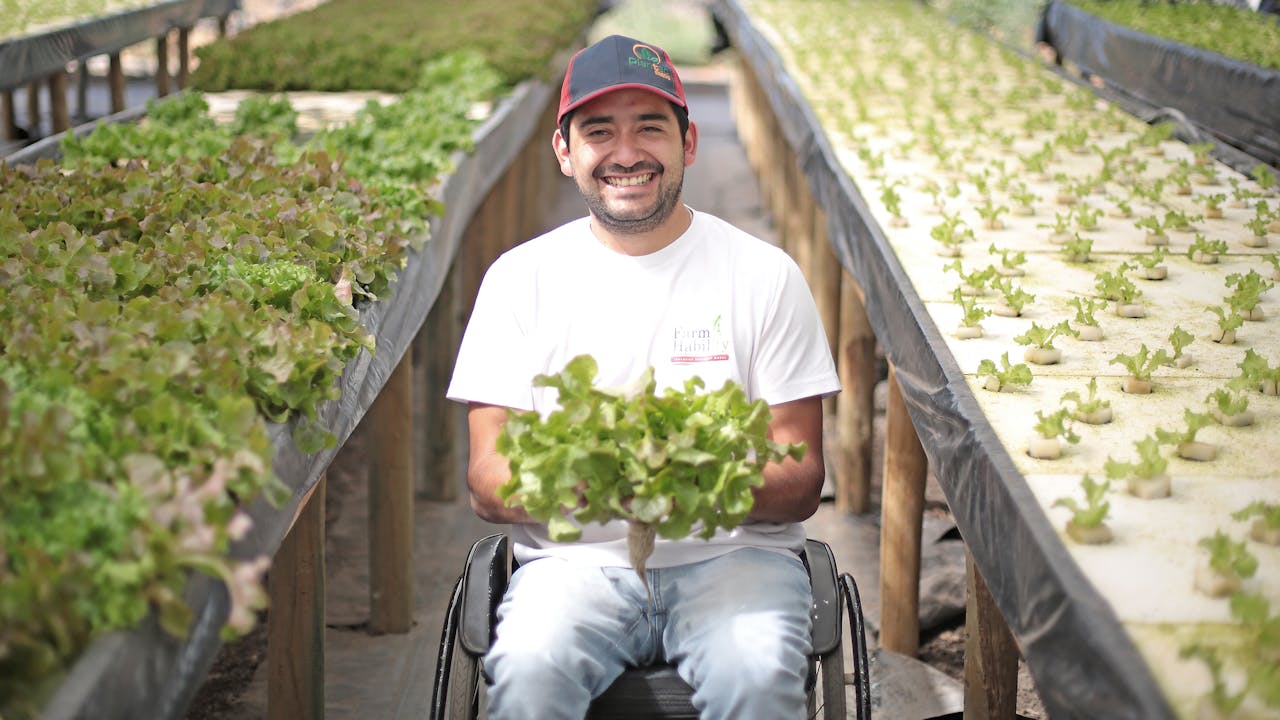
These lettuces will be sold in supermarkets in Chile.
© ILO/OIT Francisco CastilloI can honestly say I feel happy and grateful for everything that life has given me, despite having gone through such a turbulent time when I felt like all my plans and my future had been destroyed.
We are developing something that is not only economically sustainable, but will also have an unprecedented impact on society. We are the pioneers of work for people with disabilities in Chile’s agricultural sector. That's something very moving and fulfilling. It honestly feels great.
It's amazing to look back and see where I was, and then look at what we're doing now and everything that's left to be done, because this project is just getting started; it's a limitless idea.
